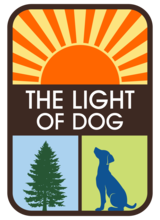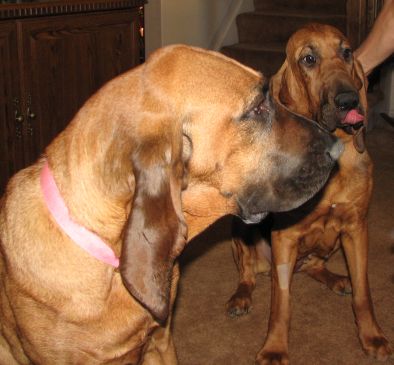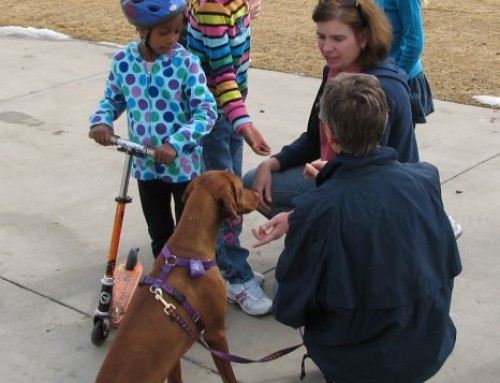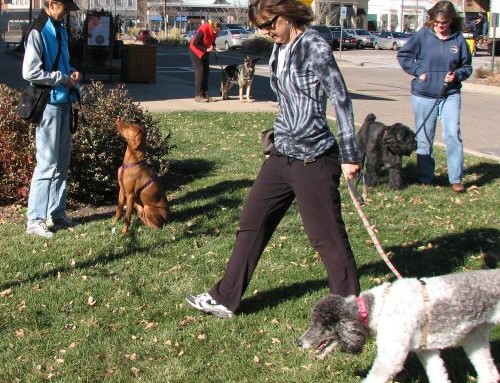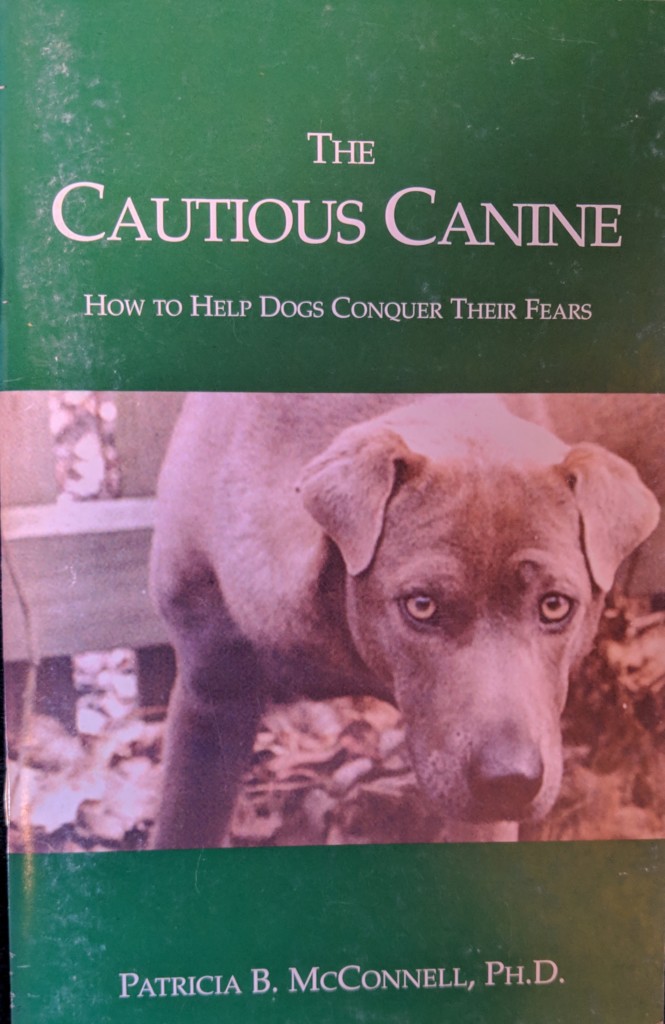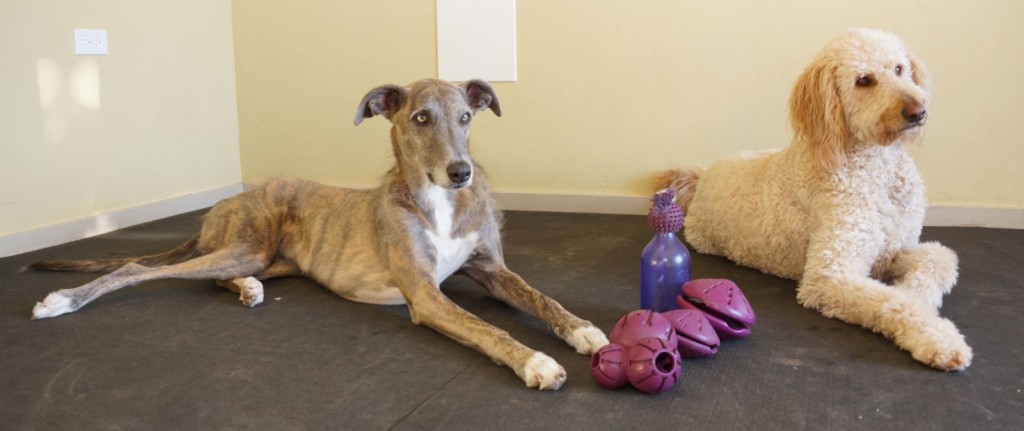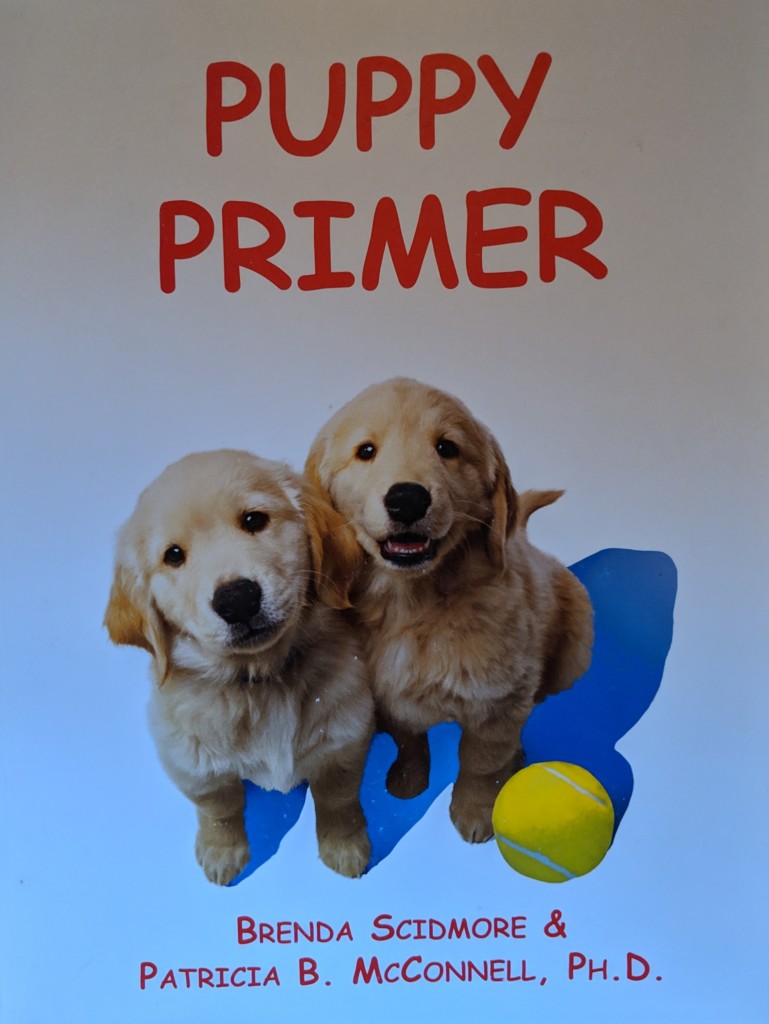DOG TRAINING OFFERED IN-PERSON AND ONLINEOur dog training services are delivered in almost any format that meets your needs. We have GROUP CLASSES at our indoor and outdoor facilities on our farm, ONLINE LIVE STREAMING classes, and SELF-PACED VIDEO-BASED training through our Online Dog Training Course. Our PRIVATE TRAININGS can be done in-home, outside, in public dog-friendly locations, at our facility on our farm, online via phone or video conferencing and through email. |
This is part 3 in my series on the use of and side effects of punishment. My source is Murray Sidman's Coercion and Its Fallout. In the last post, I quoted from his chapter on Escape. This post discusses Chapters 8 & 9 on Avoidance.
Rather than escaping a coercive or punishing event, avoidance means we prevent it from happening in the first place by staying away from the situation, person, or whatever we believe causes the punishing event to happen. It essentially is escape behavior, but it's escaping the event before it begins. Previous coercive events cause avoidance so that we can prevent them from happening again. However, to outsiders, it can be difficult to see what is really happening. “We are usually puzzled whenever anyone keeps doing something that has no obvious advantage. That should always make us suspect avoidance.”
“Whenever we have to do something about our own or someone else's coercion-induced avoidance. . . we are going to remain helpless unless we take two preparatory steps: First, recognize the problem behavior as avoidance; second, analyze both the past and current contingencies that might be keeping it going.” We can't change avoidance behavior if we don't understand that it's happening and what's causing it. One thing that keeps the avoidance happening is the expectation of future coercive events based on past experience. We can't expect someone to reduce the expectation of future coercive events from happening unless we change his/her experiences.
If your dog is bullied by other dogs every time he goes to day care, he might begin to avoid going into the day care building when you arrive. Until he has some positive experiences, you're not going to convince him that going to day care will be a good experience for him.
Often we are not even aware that we – or our dogs – are motivated by avoidance. Are students working for “A's” or trying to avoid an “F” or getting kicked out of school? How many employees are working to get a promotion or raise and how many are working to avoid being fired and losing a paycheck? How many dogs are working to earn treats, play, and other good things or working to avoid being scolded, hit, choked or shocked?
What really is being learned? Is coercion or punishment effective? It depends how you define “effective”. “Avoidance contingencies ‘work'; they do teach. When we look more closely at what is learned, however, we may find what we see disturbing.” What is really being learned is how to avoid and not much else.
“The avoidance paradox reveals a critical difference between positive reinforcement and negative reinforcement by avoidance. With avoidance, success breeds failure; the behavior weakens and will stop unless another [punishment] brings it back. With positive reinforcement, success breeds more of the same; the behavior continues.”
Hopefully, you are seeing the same thing I am: punishment and coercion might stop our dogs from doing certain things, at least temporarily, but they are not nearly as instructive, humane or healthy as using a positive approach. Whether or not something “works” (or appears to work in the short term) is only one of the questions we should be asking ourselves.
The other questions should be: Is it the BEST choice I could make? Is is the RIGHT choice? How does it affect my dog's quality of life and my relationship with my dog?
Our goal is to positively impact the lives of as many dogs and their families as we can, in part through our extensive library of video, infographics and text articles. |
